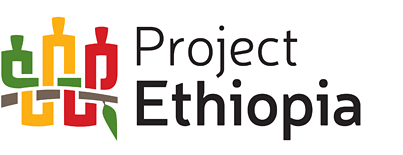Strengthening Food Systems for Rural Families

Perhaps you know about Project Ethiopia’s efforts to increase access to education and build healthy village communities, but do you know about our work bringing farmers together to learn new ideas, address the challenges many face on their farms, and share solutions? This innovative model is the Farmers’ Association and it is making a powerful impact in communities throughout the Dangla region.
“In our assessment, most of the children in the villages we serve were lagging behind others the same age both physically and academically as a result of malnutrition,” Project Leader, Awoke Genetu recently told us. “Therefore, to introduce new ideas, share new agricultural practices, and diversify family income, we needed a forum to bring farmers together in community.”
Each Project Ethiopia Farmers’ Association is comprised of 50 farmers (both men and women) from across 3 or 4 villages who form as a legal association. This allows the association members to experience advantages such as buying seeds and organic fertilizers which they may not be able to do on their own. Currently, there are three active Farmers’ Associations organized and supported by Project Ethiopia.
When an association is first organized, Project Ethiopia provides each farmer with 5 good quality sickles, a watering can, and support setting up a savings account. Farmers also have the opportunity to select farming tools from a “menu” of items such as beehives and grain storage bags. This incentive is intended to encourage participation and provide tools that will support higher yields, more efficient harvesting, and ultimately, improvements in family income and food security.
Once off the ground, farming associations meet once or twice a month to share their experiences and to learn about improved farming practices from other farmers and agricultural instructors. For example, association meetings have been used to disseminate information on the harmful effects of many pesticides and herbicides frequently used on Ethiopian farms. Additionally, they learn about how these chemicals damage the local bee population which will have a devastating impact on their crop production.
Farmers’ Associations also provide a forum for disseminating new ideas and practices. An innovative practice tested by Project Ethiopia and shared through the Farmers’ Associations is the use of diluted urine collected from our composting latrines to add nitrogen to the soil rather than chemical urea fertilizer. In addition to being expensive, chemical urea also has other negative side effects such as destroying soil organisms and decreasing the nutritional values of the plants.
In 2008, Project Ethiopia experimented with diluted urine (3 parts water to 1 part urine), and asked a few local farmers to use it on one section of their field as a replacement for chemical urea, guaranteeing we would cover any financial losses from participating in the experiment. The results were astounding! Farmers had a greater corn yield when fertilized with the diluted urine vs. expensive chemical urea fertilizer. Replacing the fertilizer with free and readily available diluted urine provides a savings of $125 per year; a significant boost for farmers who make less than $2 per day. Farmers’ Associations are a great vehicle to share this knowledge with many farmers and spread the information to others in the region.
This year will be one of growth and expansion for our Farmers’ Associations program. In addition to our three existing groups, we are planning to add four more Farmers’ Associations this year. We anticipate many exciting outcomes as we grow from 150 to 350 farmers participating in an association – stay tuned!
